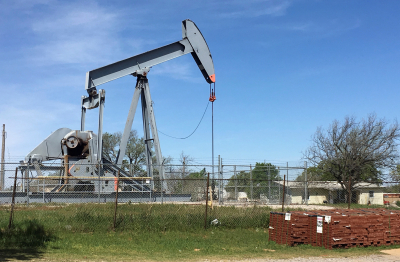
Two months of fires and floods: Greece's climate disasters in visualization
Record rainfall and forest fires devastated the country this summer. Here's a look at the disasters that will reshape the nation for years to come.
Greece is at war with climate change.
Forest fires and record rainfall have ravaged the country this summer, first incinerating entire forests and then inundating whole towns.
Here's a glimpse of two months of disasters that will reshape the nation for years to come.
Fires The fire started near the town of Alexandroupolis in the eastern Evros region on August 19, quickly spreading, merging with smaller fires, and forming a hellish blaze that turned hundreds of square miles of forest into dust and ashes.
At night, walls of flames raged through the forests, prompting authorities to evacuate entire villages and hospitals as emergency services battled the inferno for days.
Hundreds of firefighters from Greece and EU countries were deployed, along with dozens of aircraft.
Hot, dry conditions exacerbated by climate change, according to scientists, created one of Greece's hottest summers on record and ideal conditions for fires, resulting in at least 18 deaths.
Although the total number of fires recorded up to Wednesday this year, 51, was fewer than last year's 66, the fires burned nearly nine times more land.
The fires were the largest ever faced by the European Union, said Janez Lenarčič, European Commissioner for Crisis Management, in August.
Scientists predict that extreme weather events will become increasingly common as the consequences of climate change worsen.
When it all finally ended in early September, residents began returning to what was left of their villages, only to be hit by record rainfall.
Floods Storm Ianos, a deadly cyclone that inundated areas of the Mediterranean from Greece to Libya in early September, became one of the fiercest storms Greece has ever seen, sweeping homes off their foundations with rains that lasted three days and claimed at least 17 lives.
Houses and roads were destroyed, bridges collapsed, and fertile fields on the plains of Thessaly in western Greece, known as the country's breadbasket, were laid waste.
Many farmers lost their livelihoods.
In rural towns like Koskinas and Palama, among the hardest-hit areas, house walls were torn down, and cars were covered in thick layers of mud as people spent days searching for their belongings.
Georgia Bloufas, a 60-year-old widow from Palama, worked at a local restaurant destroyed by the flood. She fled her family's home around 5 a.m., her youngest grandson carried on his father's shoulders. Her cousin called the police, but it was futile.
"They said they don't know anything," she previously told NBC News. "People weren't warned."
Greek Prime Minister Kyriakos Mitsotakis said last month that the country faced an "unprecedented weather event, a disaster of immense proportions."
"We need an unprecedented response," he told European Parliament President Robert Metsola.
Please note that this translation may contain sensitive content due to the nature of the disasters.





